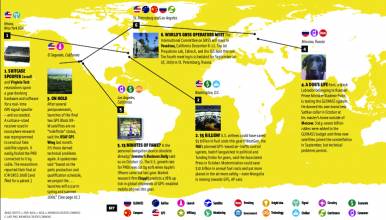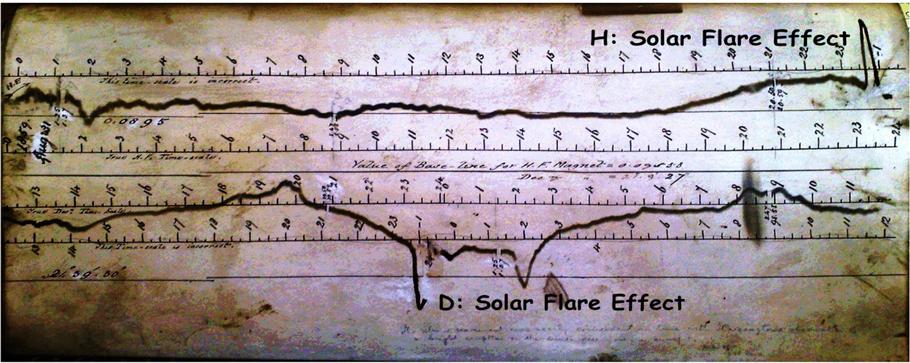 One of 12 magnetograms recorded at Greenwich Observatory during the Great Geomagnetic Storm of 1859
One of 12 magnetograms recorded at Greenwich Observatory during the Great Geomagnetic Storm of 1859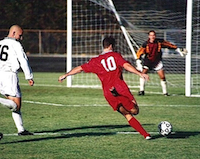 1996 soccer game in the Midwest, (Rick Dikeman image)
1996 soccer game in the Midwest, (Rick Dikeman image)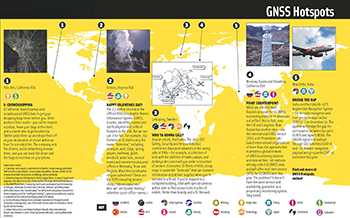
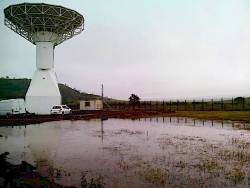 Nouméa ground station after the flood
Nouméa ground station after the flood A pencil and a coffee cup show the size of NASA’s teeny tiny PhoneSat
A pencil and a coffee cup show the size of NASA’s teeny tiny PhoneSat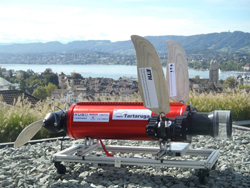 Bonus Hotspot: Naro Tartaruga AUV
Bonus Hotspot: Naro Tartaruga AUV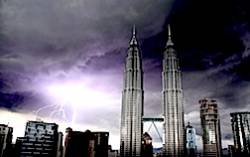
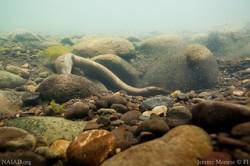 Pacific lamprey spawning (photo by Jeremy Monroe, Fresh Waters Illustrated)
Pacific lamprey spawning (photo by Jeremy Monroe, Fresh Waters Illustrated) “Return of the Bucentaurn to the Molo on Ascension Day”, by (Giovanni Antonio Canal) Canaletto
“Return of the Bucentaurn to the Molo on Ascension Day”, by (Giovanni Antonio Canal) Canaletto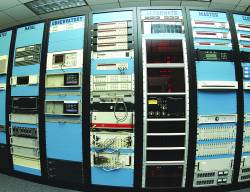 The U.S. Naval Observatory Alternate Master Clock at 2nd Space Operations Squadron, Schriever AFB in Colorado. This photo was taken in January, 2006 during the addition of a leap second. The USNO master clocks control GPS timing. They are accurate to within one second every 20 million years (Satellites are so picky! Humans, on the other hand, just want to know if we’re too late for lunch) USAF photo by A1C Jason Ridder.
The U.S. Naval Observatory Alternate Master Clock at 2nd Space Operations Squadron, Schriever AFB in Colorado. This photo was taken in January, 2006 during the addition of a leap second. The USNO master clocks control GPS timing. They are accurate to within one second every 20 million years (Satellites are so picky! Humans, on the other hand, just want to know if we’re too late for lunch) USAF photo by A1C Jason Ridder. 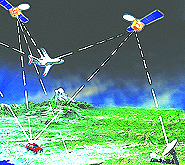 Detail of Compass/ BeiDou2 system diagram
Detail of Compass/ BeiDou2 system diagram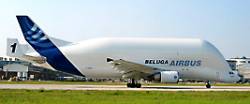 Hotspot 6: Beluga A300 600ST
Hotspot 6: Beluga A300 600ST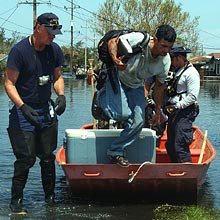

1. RUM DEAL
Moscow, Russia, and Havana, Cuba
1. RUM DEAL
Moscow, Russia, and Havana, Cuba
√ Russia and Cuba signed a space cooperation agreement in June to establish GLONASS differential correction and monitoring stations on the island. Russia is working on a global network of tracking stations and they’d like a nice mix in North and South America. So far, they’ve got Brazil and Antarctica, but the United States said no (see “sanctions”). Meanwhile, Russia blocked the 11 North Eurasian GPS Deformation Array (NEDA) GPS stations on their territory. But now that the USA is airing out its old embassy, maybe all parties could meet in Havana, hoist a few Cuba Libres and figure this multi-GNSS monitoring issue out.
2. LUCKY SEVEN
Colorado Springs, Colorado USA
√ How many people does it take to run the entire GPS system? The U.S. Air Force published a congratulatory story on GPS for the 20th anniversary of full operational capability this July 17. They quoted General John Hyten, head of the U.S. Air Force Space Command, who said in a recent speech, “Walk into Schriever AFB and in a little room you’ll find seven airmen, average age about 23 years old. . . . So if you’re on a bass boat in the middle of Alabama; if you’re on a golf course in the middle of Scotland; wherever you happen to be using GPS. . . . Those Airmen are providing everything that is GPS for the entire world — everything. That’s pretty amazing.”
3. COMPETITION
Cape Canaveral, Florida USA
√ GPS IIF-10 will have headed spaceward to join its 31 SV constellation by the time you get this magazine. It’s scheduled for launch from Cape Canaveral on July 15 via United Launch Alliance (ULA) Atlas V. Meanwhile, the explosion about two minutes after liftoff of the SpaceX rocket on June 28 may have set back plans to carry future GPS satellites via that company’s Falcon 9 until investigators figure out why it happened. The booster was okayed for government work in May. The Air Force was set to stage its first open competition this summer between ULA — a Boeing/Lockheed joint venture — and SpaceX for the right to launch future GPS navigation satellites.
4. COLLISION AVOIDANCE
Mountain View, California
√ After a short cooling off period, Google self-driving car project and Delphi Automotive PLC said that what first was reported to be a near collision with their respective driverless cars was simply their software doing what it was supposed to do. On June 25, both cars were a lane’s width apart when the Delphi vehicle started a lane change the company first claimed had been “cut off” by the Google car. The next day, both companies issued statements saying their vehicles had made appropriate moves to avoid landing in the same spot at the same time. A lesson for the future? Humans jump to conclusions, automatons stay calm and carry on.

